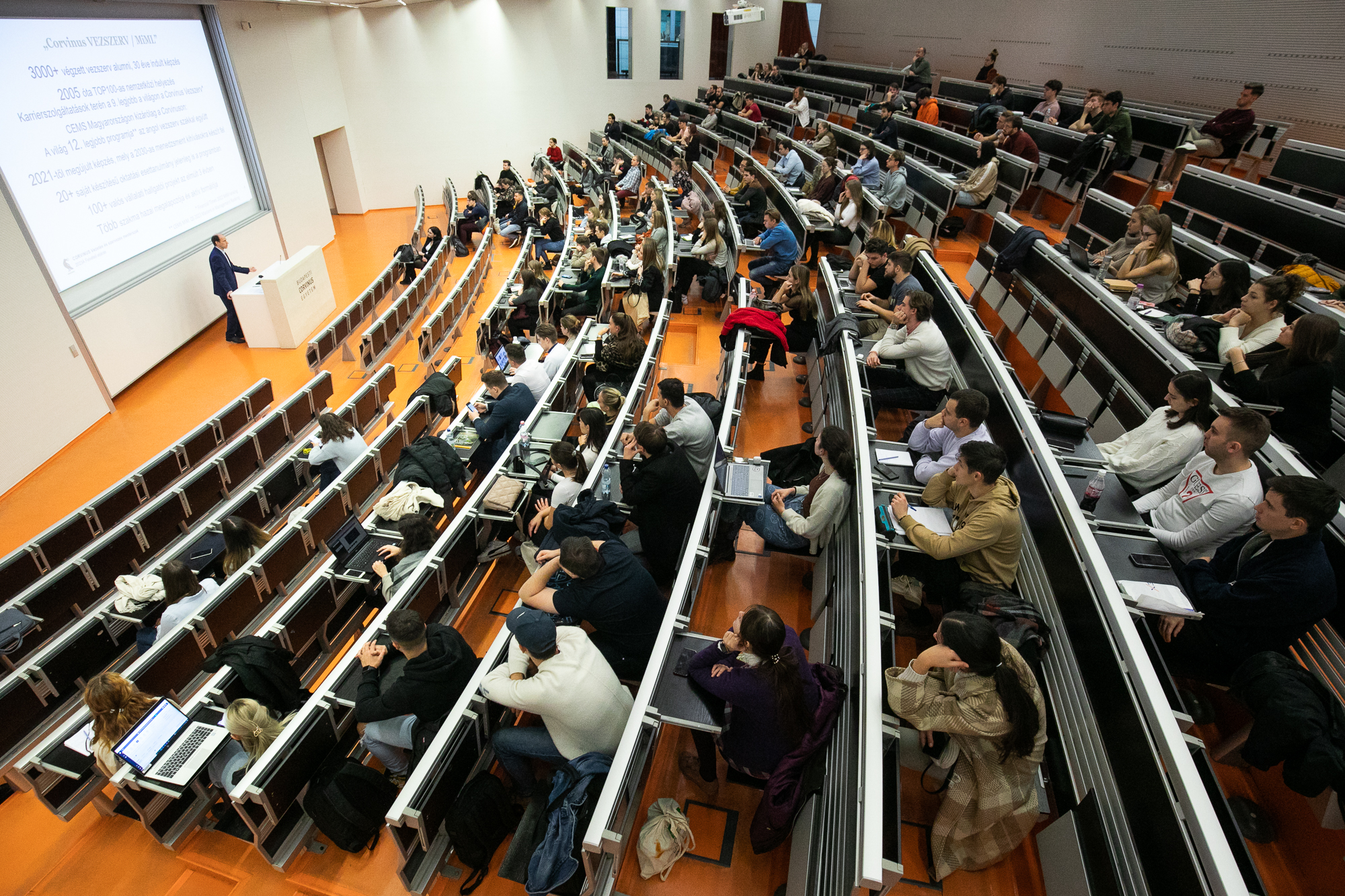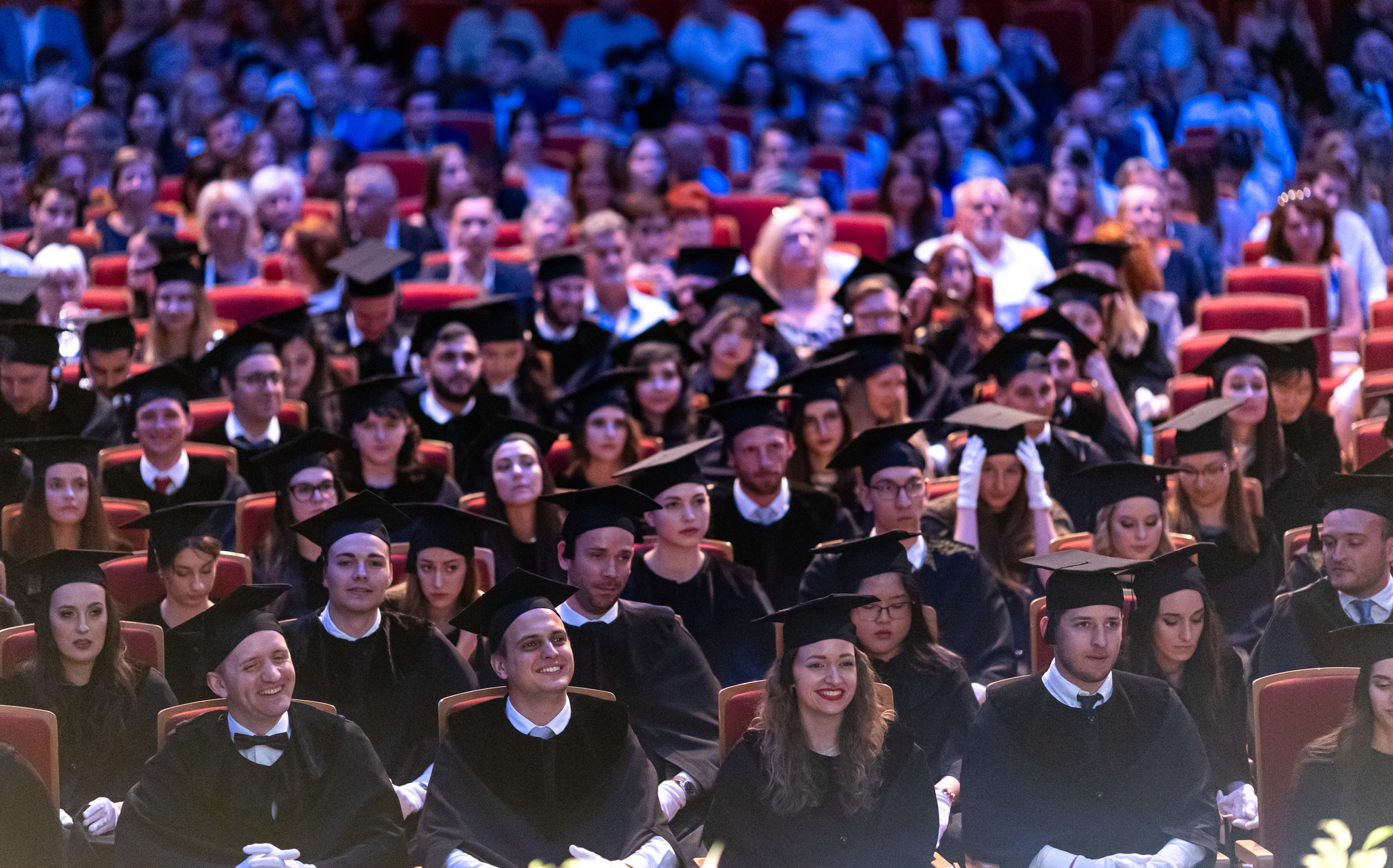
The government sent Brussels a legislative amendment package nearly six months ago.Continue reading

Mathias Corvinus Collegium (MCC) hosted a conference “The exclusion of Hungarian universities from Erasmus and Horizon – causes and opportunities,” where the situation of universities excluded from the European Union’s funding program was discussed, Világgazdaság reports.
“We would like to present in an international arena why the EU’s exclusion of Hungarian foundation universities from the Erasmus program in December 2022 is an unfair and discriminatory decision. The exclusion is unfair because higher education is a national competence, and discriminatory because these decisions of the EU are not made in Hungary, but in Brussels,” said Balázs Hankó, State Secretary at the Ministry of Culture and Innovation, about the background of the conference on Tuesday.
Packed house and interest at our 1-day conference on Hungary’s #Erasmus exclusion!
Dr. Hankó Balázs, State Secretary for Higher Education, kicked things off, followed by an insightful dissection of the highly dubious reasons behind the exclusion by @rodballester. pic.twitter.com/NgJ5vbzDTK
— Mathias Corvinus Collegium (@MCC_Budapest) June 4, 2024
He believes that the decision is also unjustified because the proposals requested by the European Commission have already been transposed into Hungarian law in 2022. “For instance, the dynamic board of trustees’ meeting and the mandatory public procurement,” he added. He recalled that six Hungarian universities had filed a lawsuit against the decision, as the new Hungarian operating model, which the EU opposes, was proposed by the universities.
The new model is more competitive, more effective, with more international publications and greater excellence in education, the State Secretary said.
As a result, we now have 12 institutions in the top 5% of the world’s best universities.”
“We have stopped waiting for the European Commission’s response, which is six months overdue, for the EU Court of Justice’s decision, and we have launched programs that are better than those of the EU,” he noted.
With the Pannonia Program, we are using 10 billion forints (25.5 million euros) to send eight thousand students not only to the best universities in Hungary but also in the world, and 8 billion forints (20.4 million euros) are available for the HU-rizont program, promoting international cooperation in Hungarian research,”
the State Secretary explained. However, they hope that these programs will not replace but complement EU funding in the future.
One of the panelists, Dr. Eszter Lukács, represented Széchenyi István University in Győr. The Vice President for Strategy and International Affairs said that before deciding to change the university model, they had looked at the most successful foreign universities and found that all of them were operating under a presidential system.
Now we see that we are being penalized for following the same pattern as the most successful universities in North America, Western Europe, or East Asia,”
she pointed out.
Today’s world rankings are very research-oriented, with Széchenyi István University spending 700 million forints (1.8 million euros) a year on research performance improvement. “Without a change of model, we would hardly have been able to do this, and all this helps us to catch up with the world leaders,” she explained. Four years ago, the institution was not ranked in any league tables, but the 2021 model change has resulted in it being included among the world’s top universities in several categories.
Via Világgazdaság, Featured image: Facebook/Semmelweis Egyetem